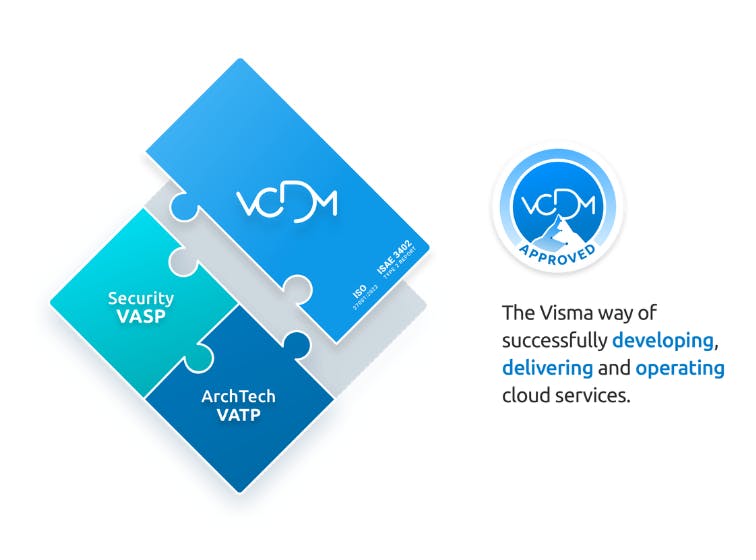Article
Cloud basics: Deployment models

11/8/2024
min read
Business insights, Innovation and development
This article was originally published in 2012 and has since been updated.
One of the key elements of cloud computing is the deployment model. There are a number of different methodologies and ways to define the elements of the Cloud. So far there are no unambiguously definitions or standards.
Visit our cloud technology page to learn everything you need to know about cloud computing.
Therefore, there are different understandings of deployment models with no one being better than another, but we are seeing some dominant definitions. In this article, we will explore the concepts of deployment. Generally speaking, deployment is the process of making software available and ready for use.
In a Cloud context deployment is basically where the software is made available, in other words where it is running. Another issue is when the software is made available, and that is a matter more closely linked to the software development process. Agile development makes it possible to release after each sprint, typically in 2-4 weeks cycles. In this article, we will focus only on where the software is made available.
The different cloud deployment models

Public cloud
The most common and well-known deployment model is Public Cloud. A Public Cloud is a huge data centre that offers the same services to all its users. The services are accessible for everyone and much used for the consumer segment.
Examples of public services are Facebook, Google, and LinkedIn. For consumers, Public Cloud offerings are usually free of charge, for professionals there is usually a per-per-use (or user) pricing model. The Public Cloud is always hosted by a professional Cloud supplier.
Private cloud
The other commonly used deployment model is Private Clouds. There are lots of discussions on how strict the definition of Private Clouds should be. In general, a customer’s internally hosted data centre is regarded as a Private Cloud. If we add virtualization and automation, such a setup may very well be regarded as a Private Cloud.
A professional Cloud vendor may also offer a Private Cloud to their customers by supporting a separate hardware environment in the data centre. A Private Cloud is therefore most suited for sensitive data, where the customer is dependent on a certain degree of security.
Private Clouds, to a certain degree, lose the economy of scale compared to a Public Cloud.
Virtual Private cloud
A Private Cloud offspring is the Virtual Private Cloud. This is a virtual, and not physically, separated Cloud offering normally run in a Public Cloud centre.
Access is given through a secure connection, i.e. VPN, and access may also be restricted by the physical location of the user, i.e. within the customer’s firewalls.
Hybrid cloud
The Hybrid Cloud is a combination of both Private and Public. This is a setup that is much used for large companies. Vital data is usually preferred in a Private Cloud and supporting services in Public, for instance, search, email, blogs, CRM, and so on. In other words, strategic applications are run separately.
Community cloud

A way to preserve the benefits of economy of scales with the Private Cloud is a Community Cloud. This is a cooperation between users who share some concerns like security, application types, legislative issues, and efficiency demands. In other words, a Community Cloud is a closed Private Cloud for a group of users.
For governments, this is called Government Cloud and is a type of Cloud that is more and more adapted. Due to legislative issues, a Government Cloud may be the answer to country specific judicial concerns.

Want to read more about what cloud computing is, typical use cases, and benefits?
Want to read more about what cloud computing is, typical use cases, and benefits?
About the episode
Nils Vold
Nils Vold was previously the Director of Business Development in Visma Enterprise Solutions. He was also a co-founder and manager in the tech startup Deriga which was acquired by Visma in 2006. Nils holds a master's degree in Information Technology and also a master of Management.
Cloud,SaaS,Technology
Voice of Visma
Welcome to the Voice of Visma podcast, where we sit down with the business builders, entrepreneurs, and innovators across Visma, sharing their perspectives on how they scale companies, reshape industries, and create real customer value across markets.
Nils Vold
Nils Vold was previously the Director of Business Development in Visma Enterprise Solutions. He was also a co-founder and manager in the tech startup Deriga which was acquired by Visma in 2006. Nils holds a master's degree in Information Technology and also a master of Management.
Cloud,SaaS,Technology


























































































































































































































